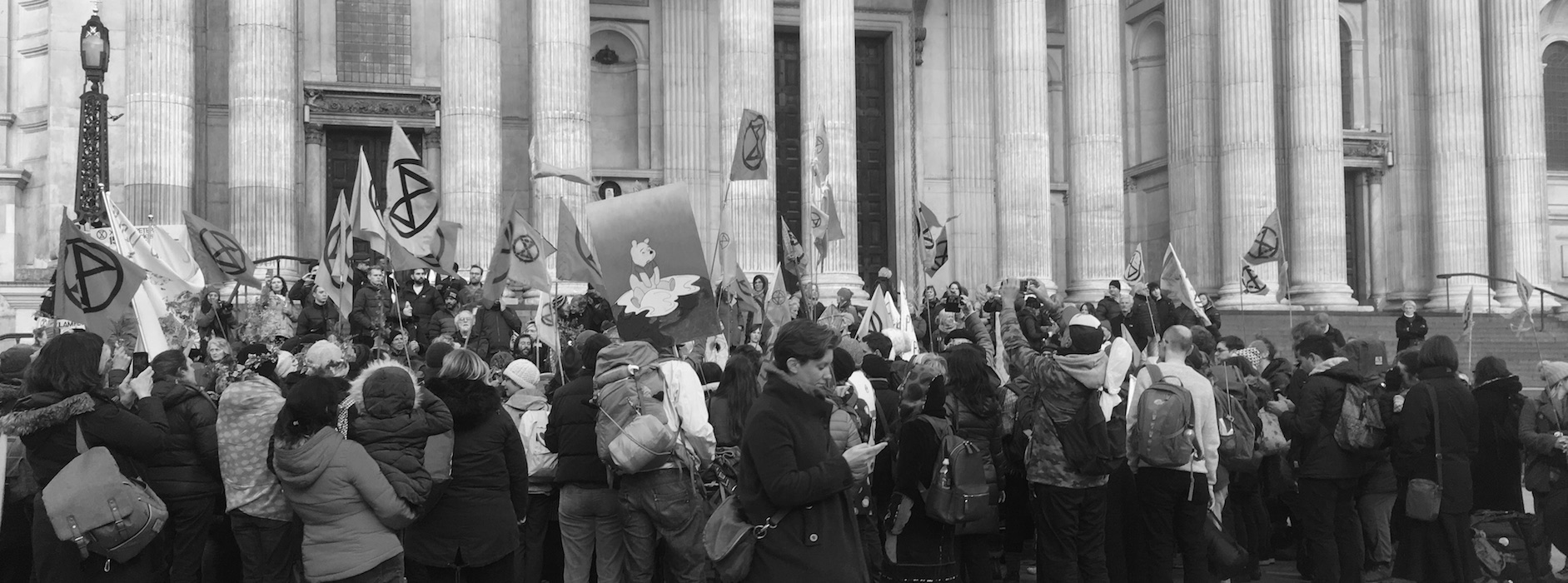On a day when the news is heavy with stories of destruction and loss, I’m thinking about cauldrons, and what Sharon Blackie writes in her book If Women Rose Rooted about their associations with transformation and new life.
The fire at Notre Dame dominated the news agenda this morning, and the pain and loss following the destruction of the wooden interior and the Cathedral spire was tangible in Paris and beyond. In the same programme there was a piece about the microplastics that have been discovered in the Pyrenees, an area previously considered pristine.
I throw these into the pot, not knowing what will come of the mixing of the two, not wanting to tread on the pain felt over Notre Dame, but wondering at the sense of detachment with which the story about the pollution in the Pyrenees was covered. Why weren’t the voices of the mourners heard then? Into the pot too, goes the questions asked by the presenter about Extinction Rebellion’s tactics, whether it was right to disrupt people’s lives and take up police time by blocking roads. I sprinkle in all the reactions I have towards ‘them’ the producers and journalists who shape those discussions, including a big dollop of frustration that the questions they ask often seem to be the ‘wrong’ ones.
I pour in my hopes for what might be achieved, my own questions about tactics, with a glug of George Monbiot’s words challenging complacency:
Catastrophe afflicts people now and, unlike those in the rich world who can still afford to wallow in despair, they are forced to respond in practical ways. In Mozambique, Zimbabwe and Malawi, devastated by Cyclone Idai, in Syria, Libya and Yemen, where climate chaos has contributed to civil war, in Guatemala, Honduras and El Salvador,, where crop failure, drought and the collapse of fisheries have driven people from their homes, despair is not an option. Our inaction has forced them into action, as they respond to terrifying circumstances caused primarily by the rich world’s consumption. The Christians are right: despair is a sin.
I throw in too, the hours I spent in a sunshine-drenched London yesterday with a remarkable bunch of people – including these two extremely remarkable women, Jo and Emma – walking from Tower Hill to St Paul’s (leaving some of them to go onto Westminster) acknowledging and honouring the water in our city. The sense of enchantment in the Spring-warmed streets as we acknowledged the importance of what is often overlooked, and how moving it was as we sang, people played music, read poems, and performed beautiful rituals and remembered how vital water is to our life in this place. Singing to springs that have built over – there’s one underneath Australia House – acknowledging the sacred ground that lay beneath St Paul’s – all of this can go in the pot, along with the symbolism of the golden thread trailed around the streets to symbolise the healing of the earth’s mycelium.
A dash of the words of those who gathered outside St Paul’s Cathedral, the night before, people of a variety of faiths and none, to meditate and pray for the earth, for those involved in the Extinction Rebellion, with a large handful of emotions that rose up when Sara Zaltash performed her call to prayer.
The conversations I had with Jo and Emma, sitting in a restaurant afterwards eating pizza and talking about what we sense, the changes taking place in this city and elsewhere, of things shifting, and things that seemed far off four or more years ago coming closer. The acknowledgement that we don’t really know, but are holding on, groping towards something new, believing that what we have been experiencing and learning will enable us to stand, and hold. The sense of being on the edge, of not really knowing what comes next, fearing what you do think/sense, feeling grateful that there are women like these who are holding what they hold.
And Silvia Federici’s words about Gossips and how the word was once free from taint “until the dawn of modern England” when it became associated with “idle, backbiting talk”.
Attaching a denigrating meaning to the term indicating friendship to the term meaning friendship among women served to destroy the female sociality that had prevailed in the Middle Ages, when most of the activities women performed were of a collective nature and, in the lower classes at least, women formed a tight-knot community that was a source of strength unmatched in the modern era.
Today’s mixture also includes an image that represents my conversations with Jo and Emma of knots being tied, a sense that all that they are is being woven into what is taking shape. We don’t know what that is, because what we’re following is both as flimsy, and at the same time as potent symbolically as that golden thread that was unravelled across those few miles of London.
We don’t know what it will achieve, but we know we have to break away from the confines of our current ways of seeing and being if we are going to shape something new. So I’ll pour in love, without which none of this will come together, and great fistfuls of gratitude to those who are also on the look out, searching out new possibilities and ways of being and holding on, resisting despair because we need the fires to be burning if we are going to cook the whole thing up…
